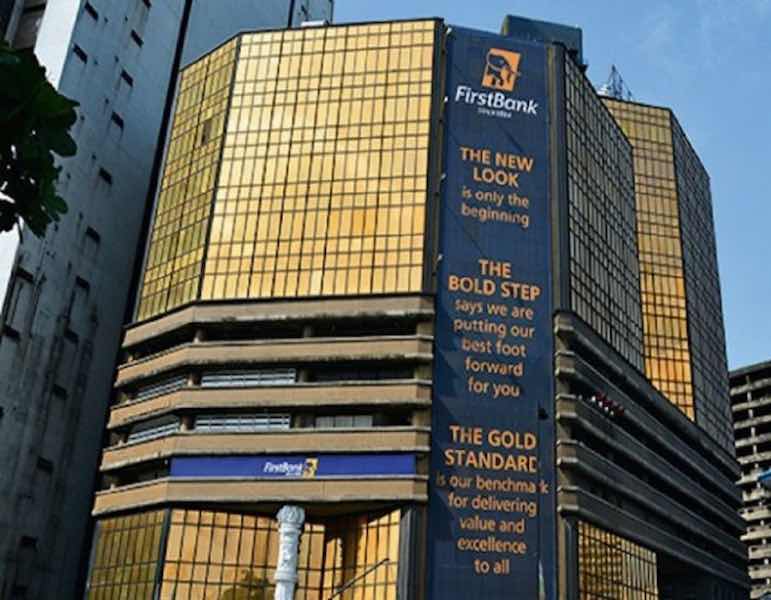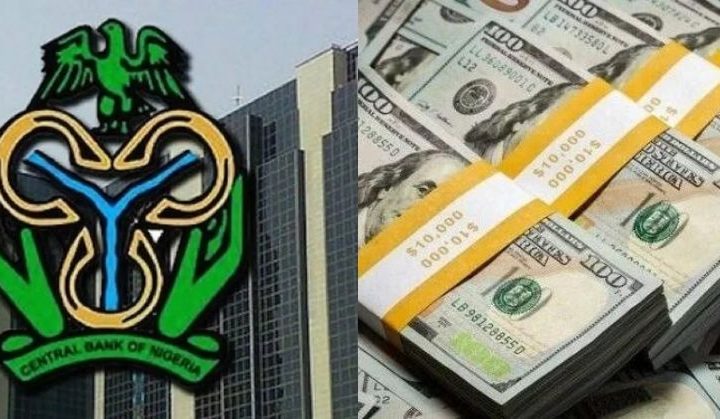From board changes to alterations in majority shareholding structure, FBN Holdings and its subsidiaries have most recently been in the news. Prime Business Africa’s CHIMARA BYGOLD, in this report examines implications of the evolving situation for the group.
Aristotle described the elephant as “the animal that surpasses all others in wit and mind.” On this premise alone, an institution that takes the symbol of an Elephant is expected to surpass all others in an industry.
Like the bear, wolf, or owl, the elephant knows when to establish boundaries and to be fiercely protective when not respected enough.
In this context, whether it is the parent company or its subsidiaries, the Elephant, symbolizes strength, might and resilience.
Join our WhatsApp ChannelBut from the last decade to 2021, most analysts have described FBN Holdings and its subsidiaries as “tottering Elephant.” The strength and resilience it ought to exude, has remained under threat.
Strength of the Elephant
Before now, First Bank of Nigeria cleared cheques for other banks, serving as the banks’ bank. If First Bank does well, most families, especially in South West Nigeria, would have improved lives.
The strength of the Elephant was well captured by the governor of the Central Bank of Nigeria (CBN), Mr. Godwin Emefiele , when he announced the dissolution of the Boards of FBN Holdings (FBNH) and FirstBank on Thursday,
April 29, 2021. Emefiele had noted: “As you may be aware, FirstBank is one of the systemically important banks in the Nigerian banking sector, given its historical significance, balance sheet size, large customer base and high level of interconnectedness with other financial service providers, amongst others.
READ ALSO: First Bank Holdings MD Okonkwo Not In EFCC Custody
By our last assessment, FirstBank has over 31 million customers, with a deposit base of N4.2trillion, shareholders funds of N618billion and NIBSS instant payment (NIP) processing capacity of 22per cent of the industry.
“To us at the CBN, not only is it imperative to protect the minority shareholders that have no voice to air their views, also important, is the protection of the over 31million customers of the bank who see FBN as a safe haven for their hard-earned savings.”
Why The Elephant Totters
The bank maintained healthy operations up until 2016 financial year when the CBN’s target examination revealed that the First Bank was in grave financial condition, with its capital adequacy ratio (CAR) and non-performing loans ratio (NPL) substantially breaching acceptable prudential standards.
Specifically, industry watchers knew that the Elephant was headed south when First Bank Holdings (FBH) recorded a total loan impairment of over N565 billion between 2016 and 2020.
It was thought that the balance sheet cleanup has brought better days to the tier 1 bank. So, it was as if critics did not notice that the market cap of FBH was below N250 billion. Yet, in four years, it has that level of impairment.
But as an African proverb puts it, when the wind blows, the fowl’s rump comes to public glare. Emefiele, in his briefing to the media, revealed that the CBN had granted “regulatory forbearances to enable the bank work out its non-performing loans through provision for write off of at least N150 billion from its earning for four consecutive years.”
It was clear that CBN had been breastfeeding First Bank since 2016 when it approved the appointment of Dr. Adesola Adedutan to succeed the bank’s erstwhile Managing Director, Mr. Bisi Onasanya.
Most recently, another major reason why the CBN moved swiftly to sack the board and reinstate the Managing Director, Adeduntan was its inability to control the majority shareholder Oba Otudeko and since he did not accede to the demand of Emefiele, there was no way he could be allowed to keep running the bank without a check like Adeduntan.
According to Emefiele, he cannot allow a Shareholder who will not subject himself to regulatory control and authority to remain a director of the bank.
Emefiele did not mince words on why the Elephant was tottering.
“The problems at the bank were attributed to bad credit decisions, significant and non-performing insider loans and poor corporate governance practices. The shareholders of the bank and FBN Holding Plc also lacked the capacity to recapitalize the bank to minimum requirements. These conclusions arose from various entreaties by the CBN to recapitalize,” he stated.
He went on: “The insiders who took loans in the bank, with controlling influence on the board of directors, failed to adhere to the terms for the restructuring of their credit facilities which contributed to the poor financial state of the bank. The CBN’s recent target examination, as of December 31, 2020, revealed that insider loans were materially non-compliant with restructuring terms (e.g. non-perfection of lien on shares/collateral arrangements) for over three years, despite several regulatory reminders. The bank has not also divested its non-permissible holdings in non-financial entities in line with regulatory directives.”
The irony here is that FirstBank is known to be the clearing bank to other banks presently under the CBN’s forbearance arrangement. These banks have presented noticeably negative shareholder funds in their 2020 financial statements with these funds being negative north of N250billion.
Analysts at Proshare have argued that even where shareholders’ funds have turned up positive, the banks’ statement of financial positions (balance sheets) represent artful accounting aerobics in which negative equity is turned positive by introducing misty accounting practices such as ‘share premium accounts’ into the books of entities that are neither listed on a public exchange (to determine actual market price) or produce regular statements of intrinsic value based on globally accepted accounting guidelines (IFRS and GAAP).
Ownership Twists And Turns
Recall that, as of December 2020, the largest shareholder was Oba Otudeko, who held 5,895,264 direct shares and 532,075,839 indirect shares, which amount to less than five per cent of Holdco’s shares. Oye Hassan-Odukale owned the second largest number of shares.
FBN Holdings Plc rode on the back of two major game-changing factors to fast-tracked earnings growth in the second quarter that powered an exceptional growth of 96 per cent in after-tax profit for the quarter.
In its 2019 and 2020 audited financial results, the board and management of FBNH claimed that no individual shareholder had more than 5per cent equity in the institution and that FBNH had over 99per cent free float (shares available for free market trading and not owned by an individual or institutional block interest).
But recent arguments from an existing shareholder (Odukale) put this claim under question as both cannot hold themselves true to a governance consistency test.
Most corporate governance experts believe that the Odukale claim to being the highest shareholder requires sanction on the Holdco for misrepresenting its shareholding structure.
Concerning the shares of Tunde Hassan-Odukale, it is pertinent to ask whether a five per percent stake disclosure was made to the market as part of the post-listing rules.
The twists and turns continued when, in a letter addressed to the Director-General of the NGX, on October 27, 2021, FBN Holdings notified the bourse that the Chairman of FBN Holdings, (FBNH), Mr Tunde Hassan-Odukale, has been confirmed as the largest single shareholder of the company. Hassan-Odukale held a cumulative 5.36 per cent stake of the Group, while Otedola holds a total of 5.07 per cent of the Group’s issued share capital.
Analysts at Proshare Research even observed that the fact that disclosures in FBNH’s audited account statement which showed the relative shares of directors cannot be considered to be a true and fair representation of accurate share-ownership.
This they say, raises severe concerns about: Whether investors can trust other aspects of the account; Whether premium or regard can be placed on the reliability of the records of the registrar and its certifications; Whether FBNH share ownership is hidden behind a thick curtain of undisclosed indirect holdings; Whether other Tier 1 banks have similarly cloudy ownership structures; and Whether minority shareholders should be concerned.
Some industry watchers are eagerly waiting to see whether, SEC and the management of the NGX will now require all banks and financial Holdcos to update their schedule of share ownership and insist that individuals and institutions with shares from five per cent and above declare such interests (direct and indirect) to forestall such episodes.
“These issues will have to be addressed in the interest of the market and governance requirements to reduce corporate information asymmetry to the barest minimum. The market cannot afford to allow large individual investors to go rogue by reporting what they will and when. Proper and accurate reporting is at the heart of market transparency and provides a significant plank for establishing market credibility,” the analysts said.
There was yet another twist from the Elephant family. The Holdco’s communication claimed that it was unaware of anybody buying truckloads of its shares. But later confirmed Femi Otedola’s purchase of slightly over five per cent shares and also went on to release a letter indicating an over five per cent holdings of Tunde Hassan-Odukale to the CAC (after the media frenzy); without a report to the market as it should . One can easily conclude that there was confusion.
In the CBN Governor’s speech, the regulator mentioned that FirstBank had enjoyed financial forbearance from the CBN for five years since 2016. Analysts that have reviewed the Audited Annual Accounts of the bank have noted that the CBN forbearance programme was not disclosed anywhere in the bank’s accounts over the past five years.
By not mentioning this material fact that it was under regulatory forbearance, a certain school of thought believe the bank had misled the financial market in general, and the stock market about its state of financial health, thereby resulting in a situation where its traded share price on the floor of the Nigerian Exchange Group (NGX) did not reflect the bank’s intrinsic value.
This was a breach of best global governance practice which created a problem economists refer to as an ‘asymmetric information’ or information failure’ problem where one set of investors have superior knowledge of the state of financial health of a listed company than another set of investors or where a bank’s insiders (management and directors) know more about the financial status of an institution than its owners or shareholders.
While FirstBank’s Board members knew about the CBN’s forbearance programme, investors in the bank’s holding company (FBNH) were pretty much in the dark.
The fact that neither the FBNH Board nor the CBN management deemed it necessary to inform the investing public of the fiscal affairs of the bank with both parties remaining silent over the forbearance granted FirstBank by the regulator over the last half-decade throws any argument of a moral or professional high ground of the regulator under the bus, according to analysts.
In another development, and in response to unfolding developments concerning old and new stakeholders in FBN Holdings (FBNH), the Holdco’s Directors, in a Board meeting held on Thursday, October 27, 2021, approved the appointment of Meristem Registrars as a replacement for First Registrars and Investor Services Limited. The appointment will take effect from December 1, 2021.
The Rules On 5% Share Ownership
Similarly, Sec 3.2.1 of the CBN Code of Corporate Governance provides as follows: An equity holding of five per cent and above by any investor shall be subject to CBN’s prior approval. Where such shares are acquired through the capital market, the bank shall apply for a no-objection letter from the CBN immediately after the acquisition.
Regarding the NGX, the amendment to the Listing Rules provides as follows: “Every Issuer shall notify The Exchange immediately on any transaction that brings the beneficial ownership in the company’s shares to five per cent or more not later than 10 business days after such transaction.”
Rule 12.2 of the rules also provides that: “In the event of any breach of the provision of this paragraph, the Issuer shall be liable to pay a fine of 50% of its annual listing fee.” Also, in compliance with Rule 13 of the Listing Rules, “this information will be included in the Annual Report.”
Discerning market participants, therefore, wonder why the Odukale vs Otedola imbroglio would arise in the first place.
The primary capital market regulatory body, the Securities and Exchange Commission (SEC) Nigeria, equally has a few rules concerning significant shareholder acquisitions. The chief market regulator in Rule 397(2) of the Consolidated Rule and Regulations of the Securities and Exchange Commission (SEC) requires the Registrar to file information on any transaction that brings beneficial ownership of shares in the company to five percent or more, which is to be notified to the Commission, the Company and the Securities Exchange.
The importance of information explains why FBNH’s initial response to the news of a new significant shareholder was untidy.
Hope for the Elephant
A herd of finance and Economic analysts have argued that the coming of a new investor in the calibre of Nigerian billionaire and Chairman, Geregu Power, Femi Otedola will turn things around for FBN Holdings and its subsidiaries.
Otedola has been described as a prophet of enterprise.
His determination and clarity of purpose may prove effective in altering the bank’s dwindling market positioning.
The power sector entrepreneur is known for having a reputation for turning businesses around and transforming their operations (AP, later to become Forte Oil and Geregu Power, offers insight into this context).
Upon his departure from Forte Oil, he gave the market a clue into his mindset when he said: “A few years ago, my team and I embarked on an arduous task of transforming a moribund petroleum marketing business, African Petroleum Plc (formerly British Petroleum) into Forte Oil Plc; a leading integrated solutions provider with solid footprints in downstream petroleum marketing, Upstream Services and Power Generation and one in which we built intrinsic value to the benefit of our shareholders.”
When he formally takes a seat on the board of FBNH, Otedola is expected to bring his previous turnaround experience to bear on the operations of the Holdco.
Although his most notable successes were in oil marketing, Otedola’s past business ventures cut across several other sectors from finance to investments and trading.
Otedola had successfully rebranded and transformed a loss-after-tax of US$123million African Petroleum Plc in 2011 to a vibrant profit-making Forte Oil Plc with an average Profit After Tax of $35 million from 2012 to 2019.
Otedola also oversaw the successful reorganisation of Forte Oil’s capital structure in 2013 because of accumulated losses through a scheme of arrangement for the company to be able to resume dividend payments in 2014 after five years of not paying dividends to shareholders.
In 2016, the company, under his leadership, announced the closure of a N9 billion corporate bond raise to shore up capital in the face of multiple devaluations and an increase in capital requirement. This instrument is listed both on the Nigerian Stock Exchange and FMDQ OTC Securities Exchange.
It is believed that Otedola’ nudge’ could lift the quality of FBNH’s board decisions and project execution commitments.
Some major investors have past due loans with the bank and may need to sell-off shares to write down their loan repayment defaults.
On the face of it, the writing down of delinquent loans should improve FBN’s non-performing loans book (NPLs), raise liquidity and put a shine on the bank’s capital adequacy ratio (CAR).
Smaller investors would, therefore, take solace in the fact that improved bank fundamentals would see a series of share price rises as fourth quarter (Q4) 2021 results of the bank show more substantial operating numbers.
The new share ownership structure could lead to lower volumes of delinquent insider loans and better resource management, translating into lower cost-to-income ratios (CIRs).
The struggle for control, according to Executive Director, Cordros Capital Limited, Mr. Olufemi Ademola is caused by the vacuum created by the current travails of former Chairman of the holding company, Oba Otudeko.
“However, as publicly quoted, there is not much the shareholders can do to prevent the entry of new investors. While it is difficult to be exact on what the bank would benefit, it can be expected that the presence of more influencers on the board of the bank would help better decision making from diverse ideas and suggestions from board members.
“The bank can also benefit from having to do more businesses with the associated companies of the new investor and thus increase profitability, ”he stated.
By committing their resources to the bank, analysts believe the majority shareholders are sending the right signals to the investing community that the bank is solid.
This was the view of the Managing Director/Chief Executive, SD&D Capital Management Limited, Mr Idakolo Gabriel Gbolade.
According to him, “First Bank Holdings will definitely benefit from the battle because of the renewed interest in its shares by the major shareholders of the bank. With the entrance of Mr. Femi Otedola into the major shareholders category, it will bring more confidence to the investors and shareholders of the bank.
“The bank also stands to benefit from the wealth of experience of Mr. Otedola who is a turnaround expert having done that with his previous oil company and other investments.”
Conclusively, in his letter to the Chairman of the company, titled, ‘Interest in First Bank Holdings Plc,’ Otedola reaffirmed his interest by saying: “Pursuant to the notice of substantial shareholding tendered by my Stockbrokers, APT securities Limited and dated 22/10/2021, it is pertinent to state that we are in the process of consolidating shares held in the accounts of other indirect and nominee accounts and this will be forwarded in due course.
“In addition to the above, I also invested the sum of $30million in the bank’s long term debt instrument (classified as Tier II capital) which constitutes a significant portion of the bank’s capital base.”
Speaking on Arise TV, Arise Business Analyst Chika Mbonu said “I think the bank is a solid bank. It needs corporate governance and higher performance. He turned around African Petroleum to Forte Oil, and it became a prime company quoted on the stock exchange, with all the prizes they won, and then he sold it off.
” He took over Geregu Power Plant and then invested $100 million, which constitutes about 10 per cent of the power sector program in Nigeria now. And from personal experience, he is a man of integrity. So this development will help First Bank to return as the King of the banking industry.”
Brief On Recent Financials
The bank built a profit of N22.5 billion for the second quarter that represents 59 per cent of its closing profit of N38 billion for the half-year ended June 2021.
It recorded a 39 per cent profit drop in the first quarter of 2021 but a 7 per cent profit improvement year-on-year at the end of half-year operations. There is also a turnaround from a drop of over 14 per cent in gross earnings in the first quarter to an increase of 13 per cent quarter-on-quarter in the second quarter. The upturn in revenue in the second quarter has changed the half-year position to a slight decline of 1.4 per cent to close at N292 billion/
FBN Holdings ended the first half of the 2021 financial year with a balance sheet size of over N8 trillion, one of the largest bank balance sheets in the Nigerian banking space.
It grew the size of the balance sheet by 4 per cent from the closing figure of N7.7 trillion in 2020.

















Follow Us